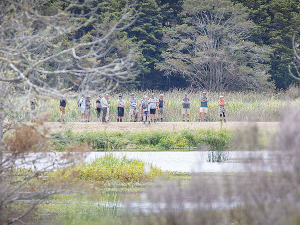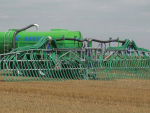The completion of the second stage of an ambitious project to rewild a once grazed Northland valley into a lush wetland has been celebrated with an event to mark World Wetlands Day this month.
The Underwood Wetland project near Dargaville commenced seven years ago in 2017 with an opening ceremony attended by then Associate Minister for Conservation, Nicky Wagner. The project has been a partnership led by Fish & Game New Zealand, and protects an area of precious native forest, wetland and river flats.
The 342ha area includes remnant kauri, hardwood forest and wetland, and river flats containing scatterings of kahikatea.
The land was purchased from local farmers David and Gloria Underwood by a $600,000 grant from the Nature Heritage Fund with $55,000 from the Northland Fish & Game Council for survey costs in 2016.
Three hundred hectares of the native forest was then classified as scenic reserve to be administered by the Department of Conservation. The remaining 40ha of grassed valley floor and surrounds was vested to Northland Fish & Game Council as Local Purpose Reserve for the development of a wetland.
Access work to create public tracks and to allow machinery into the property began in 2016. A series of ponds starting from the head of the valley were created as Stage 1 of the project. This was followed by a second stage in 2022, which saw a 210m long and 4m high bund wall created to block the valley floor and flood it, creating over 5ha of open water and vegetated shallows. It now features almost 10ha of pools and ponds with the remaining area being remnant native forest, native plantings, grassland and newly created access tracks.
The development work for the wetland has primarily been funded by $122,000 from the Northland Fish & Game Council and the Game Bird Habitat Trust, who gave $137,900 to fund the project.
This totals $259,900 of money derived from the sale of hunting licences going directly back into the creation of wildlife habitat.
Costs for access to the property were shared with the Department of Conservation, and grants for plantings have also been received from Kaipara Moana Remediation and the One Billion Trees Programme for native plantings. Planting work has been completed by Fish & Game staff as well as a significant volunteer effort from hunters and other supporters of the project.



















